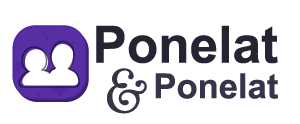- Published on
Think You Can't Code? This One Article Will Prove You Wrong
- Authors
- Name
- Josh Ponelat
- @jponelat
Programming is telling a computer what to do. And telling a computer what to do, is something we are really great at. Just reading this, you've told the computer which of the millions of blog posts you want to read. And you got there without thinking you're a programmer.
So, what makes you think you're not a programmer? And why can't you add ‘Programmer’ to your LinkedIn profile? Well, it's because you don't speak their specific language.
Imagine you're in a foreign country, and you don't speak a word of the native tongue. What can you do? Loads of things. You can get a room to sleep in, you can find food. You might get ripped off for some of them, but for the most part you would survive and possibly thrive. Navigating a computer is similar; you can accomplish a lot but lack the finesse for precise, extraordinary tasks.
When soon-to-be programmers start learning in their schools, they are taught a basic language.
The cat is orange.
The sun rises.
They are taught this because its the first thing to learn. But honestly, it's not that useful. Stopping a Japanese woman on the road, and telling her "The cat is orange", will at best get you a brow beating and at worst, have her run away in fear (rightly so).
Being able to build grammatically correct, useless sentences is only the start. Language is about exchanging something.
Moreover, language is about context. What came before and foreshadowing what is to come.
Your sentences follow in a reasonable order too. Language has rules and structure. But let us return to exchanges, language is mostly about that.
The next thing programmers learn, is how to ask for things and how to be commanding. Sometimes in the same breath. "Tell me the time". Or "When the clock strikes five, send an email to Sharon". Finally, our embrinoic programmers have found a voice that is useful. I do need to send an email to Sharon, and this little - we can call it a program - tells the computer just that.
The words may be differ, the sound of them on your lips quite foreign, but programming is merely another language. More than one language, actually. They have grammar rules (ugh), dialects, strengths and weaknesses. Rivalries and advocates, they are born and some die.
Programmers can even invent new words and frameworks. Much like bankers and lawyers have.
Several years ago, this idea of programming simply being a different language would require more convincing. But today that is different. ChatGPT bridges your language to the programming languages, and it shows how truly connected they are. You can type in a command or a query (aka question) and it'll interpret it. Just like programming.
While you might not add 'Programmer' to your LinkedIn profile today, tomorrow it may not even matter.
PS: Here is a plain text phrase, that is striking similar to a programming phrase. Go try it out in ChatGPT or similar. "For the numbers 1 to 5, print out the name of a famous person"
PSS: Yes, the click bait title was generated with ChatGPT :)
Note: This blog post was written for the Shiny Dime challenge by Write Of Passage
The prompt for this post was: "Write an article that makes sense of something confusing."
